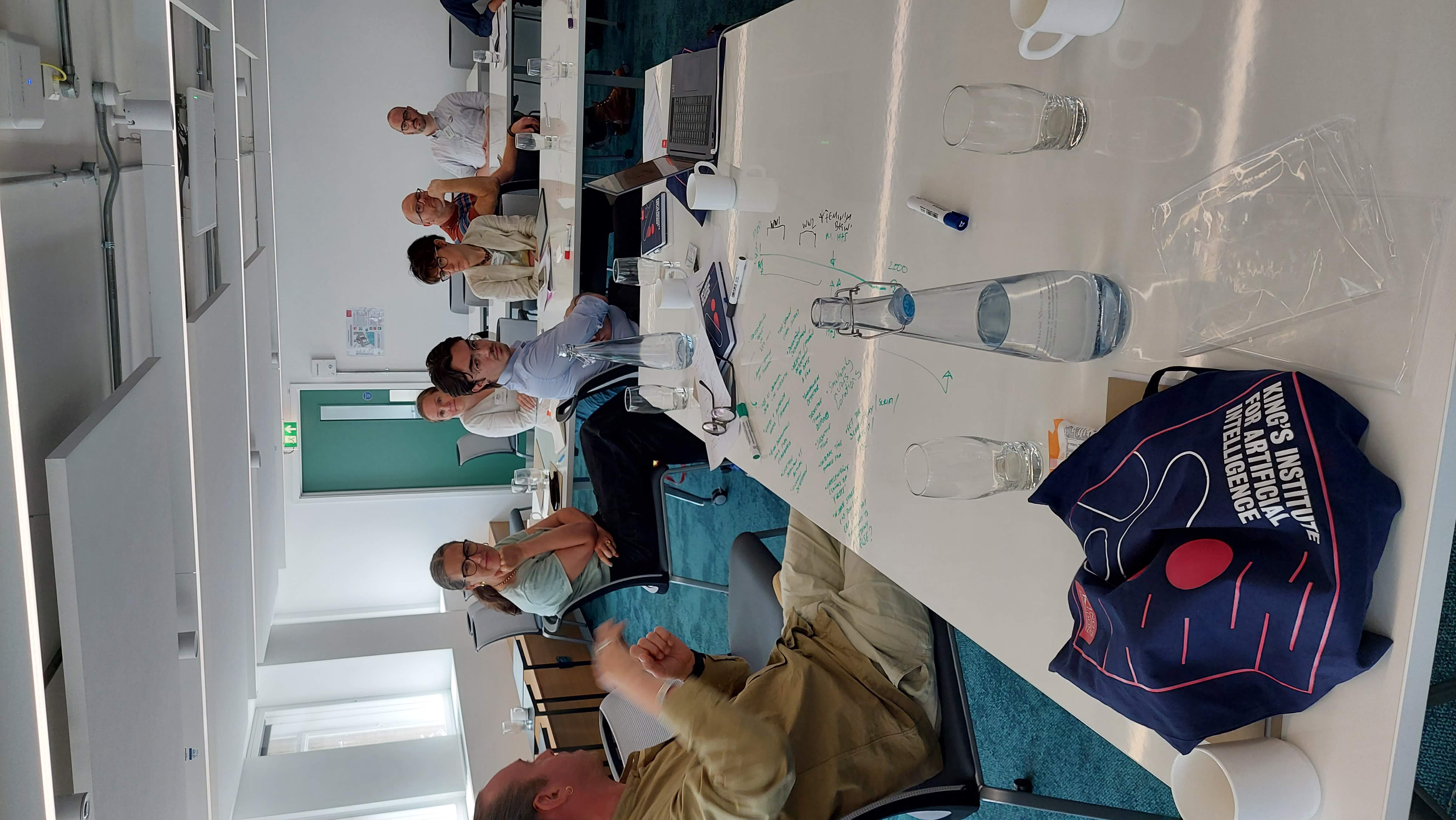Interdisciplinary Approaches to Computational Moving Images
This workshop brought together a group of researchers in the fields of digital and computational humanities, computer vision, film, digital preservation and archives, cultural history, and creative computing, to explore together emerging computational approaches to the study of time in moving images.
In this small net of notes, I document and summarise our workshop activities (and thanks to Pauline for sharing her comprehensive notes which helped me put everything together in one place). Follow the links below for organic navigation, or find here a list of all notes for this event.
The work for this workshop was split over two days:
-
On day one we explored the modelling of moving images as computational artefacts, and discussed the opportunities and challenges of computational approaches to large collections of moving images.
-
Based on these discussions, on day two we tested some of our ideas in practice using King’s CREATE HPC cluster, kindly supported by James Graham and Matt Penn from the e-Research teamat KCL.

Participants include researchers from leading laboratories in Europe, including the Cultural Data Analytics Open Lab (CUDAN) at Tallinn University and the Cultural Analytics Lab (CANAL) at the University of Amsterdam, as well as archives and digital preservation experts from public UK institutions such as the BBC and the BFI. The workshop was hosted by the Computational Humanities Research Group in the Department of Digital Humanities at King’s College London. And a big thanks to King’s Institute for Artificial Intelligence who kindly provided us with welcome packs, including totes, and notebooks.